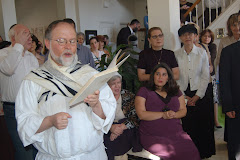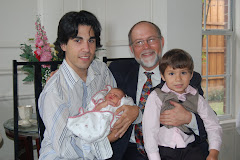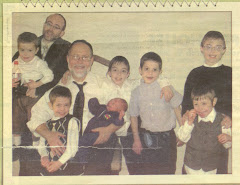It is a mitzvah in itself to make the ceremony as beautiful and meaningful as possible. This is accomplished, in part, by careful attention to the details of carrying out the commandment, such as determining the day and choosing the time.
Because the Torah tells us that Abraham circumcised Isaac on the eighth day, we understand this literally to mean day. The Bris can be scheduled any time between sunrise and sunset. Since it is preferable to perform G-d's commandments eagerly and with alacrity, it is customary to schedule the Bris as early in the day as possible. The ceremony cannot be performed at night and is considered invalid if done so. If a baby is born during twilight prior to nightfall, specific laws apply, especially preceding Shabbos or a festival. I will determine the day, with rabbinic input, if necessary.
Various explanations are offered for the Torah's specification of the eighth day. There is a Midrash that teaches that G-d had pity on the child and waited until he had the physical strength to undergo the rite. (Devarim Rabbah 6:1) Also suggested is the fact that one Shabbos must pass between birth and the eighth day, providing the child with spiritual strength from his first Shabbos experience. Finally, classical medical studies have found coagulating factors to be at their peak around this time of life.
The day of birth counts as the first day. In Jewish tradition, the day begins with the preceding nightfall. Therefore, the child must be born before sundown for that day to be counted as the first. For example, if a baby is born on Monday during daylight hours, the Bris takes place on the following Monday. However, if the baby is born on Monday night, the Bris would take place the following Tuesday. A Bris performed before the eighth day is considered invalid.
An act which causes bleeding is forbidden on Shabbos. However, because the Torah declares the Bris Milah to be performed on the eighth day the Talmud interprets that the act in its proper time takes precedence provided the laws of Shabbos are upheld. There are rabbinic opinions which state that in instances where this cannot be guaranteed, it is preferable to postpone the ceremony to the following day. If you live within walking distance to me I will bring my instruments to your home on Friday. A Bris for the purpose of conversion or a Bris on a baby born by cesarean section may not take place on Shabbos or a major festival.
A Bris may not be performed on an ill child and must be postponed until he has fully recovered. The general rule is to schedule a Bris immediately upon recovery from a local disorder (one which affects a specific part of the body) but to wait seven 24-hour periods after recovery from a systemic disorder (one which affects the entire body). I will make the proper determination in consultation with your baby's pediatrician or neo-natologist.

.jpg)
.jpg)
.jpg)
.jpg)
.jpg)
.jpg)
.jpg)
